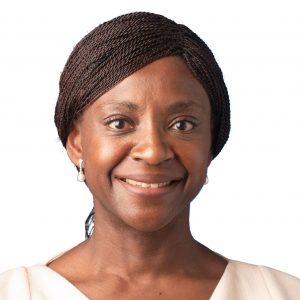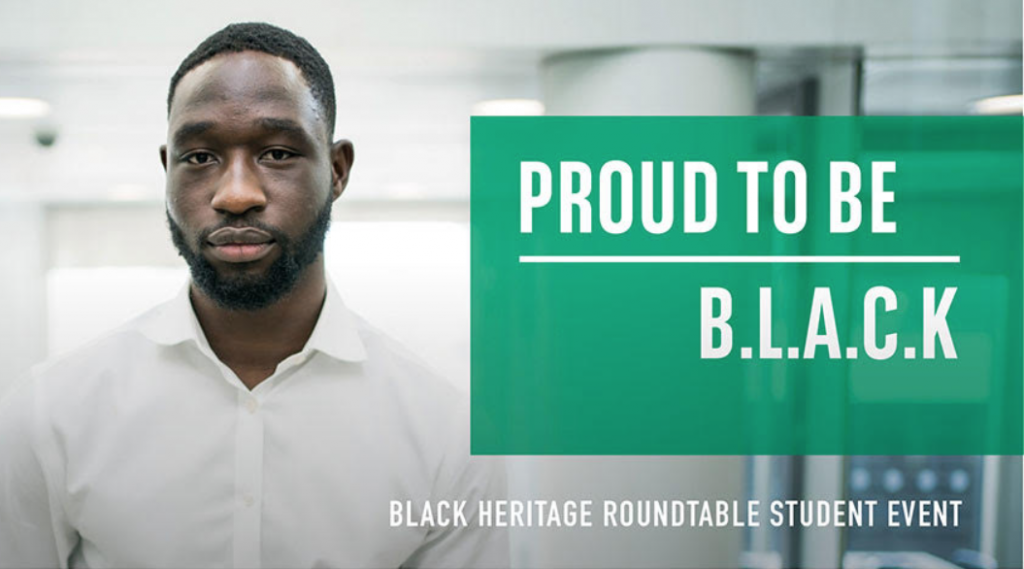BUILDING A DIVERSE TALENT PIPELINE IN A CHANGING WORLD
Ama Ocansey is UK Head of Diversity and Inclusion at BNP Paribas, a leading bank in Europe with a presence in 71 countries. Present in the UK for over 150 years, today the Group is formed of 10 divisions, with over 9,000 staff.

The business case for diversity and inclusion has long existed, and we are seeing a growing recognition of its importance across the financial services industry, alongside the legal and moral imperative to treat all people with equal respect and dignity. The message is clear: diversity unlocks potential, encourages innovation and improves financial performance.
It is a message that has, for some time, been grounded in cold, hard data. According to the most recent McKinsey report on the business case for diversity, companies in the top quartile for gender diversity on executive teams were 25% more likely to have above-average profitability than those in the bottom quartile; this percentage rose to 36% for companies with the best ethnic and cultural diversity.

In under 15 years, we have lived through two economic crises with important lessons to be learned from both. Following the 2008 financial crisis, diversity and inclusion was hailed by many as an antidote to the toxic culture of group-think that led to catastrophic failures of risk management and a resulting recession that led to disproportionate economic and social impacts on minority groups. And yet, the pace of change within the corporate world remained glacial at best. Fast forward to 2020 and, once again, we are experiencing a crisis with similarly long-term and disproportionate impacts. It was also a year that saw global calls for action on racial equality following the death of George Floyd and the growth of the Black Lives Matter movement. This presented a renewed opportunity for Black communities to speak their truths and lived experiences – both in society and in places of work.
For organisations, these external pressures highlighted an urgent need to take a harder stance against racism and discrimination, and look more broadly at issues of representation and inclusion. This is reflected in the priorities of the UK Financial Conduct Authority (FCA), the conduct regulator for financial services firms, which has highlighted diversity and inclusion as a critical part of building a healthy organisational culture, managing risk and serving consumers from diverse segments of society. Speaking at this year’s annual review of the HM Treasury Women in Finance Charter, FCA CEO Nikhil Rathi said: “I would question if any firm can adequately respond to the needs of these consumers if they do not have the diversity of background and experience required to overcome biases and blind spots”. Mr Rathi also drew attention to the importance of looking at how gender intersects other areas of diversity, particularly ethnicity. This year, the Women in Finance Charter submission form added questions on other under-represented groups.


This external pressure is not limited to the regulator. Clients are increasingly asking about diversity and inclusion commitments before entering into a relationship with a financial intermediary. And as the integration of ESG – environmental, social and governance factors – into investment decisions continues to gather pace, investor activism is not limited to environmental issues. Many investors are now pushing for greater engagement on diversity from the companies in their portfolios, thanks to the growing data sets on the link between diverse companies and financial outcomes. We are also seeing corporates and financial institutions using innovative financing to help drive positive social outcomes within their organisations. For example, at BNP Paribas we recently supported investment giant Carlyle on a $4.1bn sustainability-linked loan, whereby the price of debt is directly tied to the company’s goal of having 30% diverse directors on the boards of the companies it controls within two years of ownership.
Internally, employees are holding management to account, and diversity and inclusion are now multi-disciplinary. For example, risk and compliance teams must consider how they are embedded within regulatory compliance and organisational risk. Procurement teams must look at supply chain management. Communications specialists are increasingly involved in developing a progressive narrative and shaping organisational policy to encourage leaders to take a stance in the public domain. While there is reason to be encouraged, it is an uncomfortable truth that driving change at every level of the business remains a material challenge. According to Brightpool research conducted in 2019, 46% of CEOs in financial services believe that their company performs better for ethnic diversity, while only 25% of HR directors share this view. Progress depends on more than just policies and programmes. It depends on a deep cultural shift that addresses everything from leadership buy-in and career support to the values, behaviours and even language we use.
At BNP Paribas, we have much to do.
We are lucky to have a high level of engagement from the very top, but we must ensure that race and ethnicity measures in our sector are raised to the same degree as gender equality and other areas of diversity.
Last year, an important landmark on our journey was signing the Business in the Community Race at Work Charter, providing a framework for action on race and ethnicity; and establishing a dedicated cross-business working group of diverse talents to drive this work forward, focusing on four main areas: Recruitment, Retention & Progression, Data and Culture & Awareness.
To achieve this however, we need to start by addressing our talent pipeline, particularly within our Early Careers programmes, and see specialist partnerships as a key part of this. We have started working with Sponsors for Educational Opportunity (SEO), a charitable organisation helping us to strengthen our capabilities to attract diverse profiles of candidate, including those from Black, Asian, Mixed race and other ethnically diverse backgrounds. We have also joined 10,000 Black Interns, a UK-wide initiative that aims to transform the horizons of young Black talent in the UK by offering paid internships, and one that demonstrates the power of collective action across sectors.

We are lucky to have some great employee-led initiatives supporting this work, such as B.L.A.C.K. – which stands for Building Leaders Allies Careers and Knowledge – a programme in our Global Markets division founded by two employees. It aims to promote the benefits of racial diversity internally and forge partnerships with schools and universities to reach more diverse talent, complementing our broader engagement with local communities.
We’ve found that initiatives that drive progress from the bottom up, and not just the top down, are crucial if we are to bring everyone along on the journey.
We also want to ensure that talented individuals can progress, and find themselves on a level playing field when it comes to moving into leadership positions. Our focus is on looking at existing mentorship and sponsorship programmes within our business and elsewhere, and looking at how the different benefits of each could support specific groups.
Alongside our work on diversity, we are equally focused on inclusion, and ensuring that all employees feel safe and valued. According to the same Mckinsey report,bold action is neccessary to create a workplace where employees thrive, even when companies are relatively diverse. We want everyone thrive, even when companies are relatively diverse. We want everyone to feel able to bring their ideas and experiences to the table, and use them to do better business.
Part of this is promoting psychological safe spaces for staff to speak up, to tackle more overt forms of discrimination and inappropriate behaviour, as well as educating on the micro-aggressions that might make employees feel uncomfortable. We are actively working on improving our organisational culture and have introduced a new online forum where employees can submit questions to senior leaders and peers, openly or anonymously. We are also piloting unconscious bias and inclusivity training. This is particularly important for our younger employees, many of whom are entering the financial services industry, or full time employment, for the first time.
A feeling of belonging is something we seek to embed even before they’ve joined us. Alongside our formal graduate recruitment process, we run informal pre-assessment briefings, helping candidates prepare for the interviews and exercises, and offering tips on presenting themselves in a corporate environment. Those who secure spots on our graduate or internship programmes are matched with a buddy from a previous graduate intake before joining, and we have a vibrant community of young people, six employee networks and events such as our annual Early Careers Network BBQ to help them feel included from the start.
Corporate culture is changing, and the demands of employees, investors, regulators and society are converging when it comes to building diverse and thriving workplaces. Internal and external pressures are mounting, and financial services firms, like other sectors, must work harder to accelerate change in the face of a new economic downturn that threatens progress on diverse representation. Organisations must answer urgent calls to tackle issues as racial equality that have been overlooked for too long. Inclusion must be put front and centre of organisational culture and engagement. Employees must be given a voice, while being able to hold management accountable for the burden of real change. We are committed to transparency, to collaborating for progress, and to working to reflect the diverse society we are.

